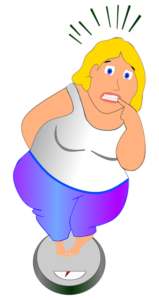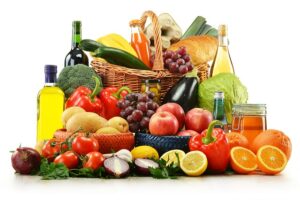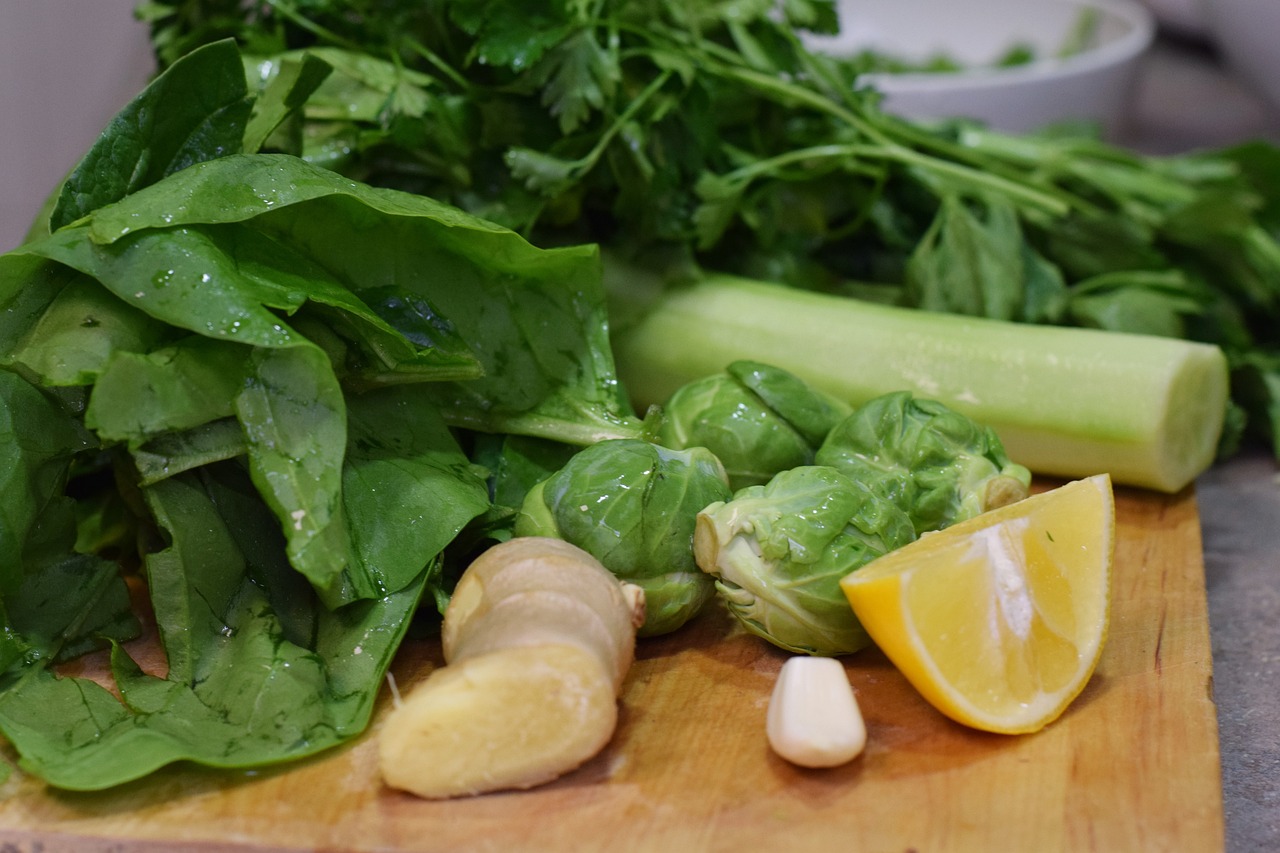 As we get older, we tend to slowly but surely recognize how much our bodies change. Once too much change has occurred, we find ourselves quickly longing for yesteryear when we could eat just about anything we wanted and stayed skinny (or at least within our ideal pants or dress size). So, what’s happened? What you might not consider is that the techniques used in your former years, which likely involved limiting your food intake, aren’t really working now. (Well it is but you gain the weight back, right?) Perhaps you are one of those people who feel like if they even stare at the food, they’ll put on a few extra pounds. 😂
As we get older, we tend to slowly but surely recognize how much our bodies change. Once too much change has occurred, we find ourselves quickly longing for yesteryear when we could eat just about anything we wanted and stayed skinny (or at least within our ideal pants or dress size). So, what’s happened? What you might not consider is that the techniques used in your former years, which likely involved limiting your food intake, aren’t really working now. (Well it is but you gain the weight back, right?) Perhaps you are one of those people who feel like if they even stare at the food, they’ll put on a few extra pounds. 😂
Aside from restricting our food intake, we may add in some exercise too. The more we sweat and the longer we do so must be the right way to do it, right. So let’s do some intense exercises – extensive cardio, strength training, weight lifting, etc., for like an hour or two, maybe three to five times per week. 😫 Add to that, we may drink a lot of detox teas and/or some weight loss supplements – since that’ll work too, right? All of this just to reach a certain number on the scale, right?!? And even if we do lose a few pounds (or reduce at least one dress size), how soon will we gain it all back plus some? I don’t share any of this as a joke, this is the reality of many of us taking one weight loss challenge after another only to come full circle and having to start over once again. So what happened? What’s going on with our metabolism? Have can you lose the weight and keep it off? Well, I’m glad you asked but first…
Three Sides to Every Story…
You’ve probably heard, “There are three sides to every story. Yours, mine, and the [real] truth!” Everywhere you look, the popular opinion is that losing weight involves reducing calories, reducing fat, increasing fiber, and exercising, right? Except the last one, all of the others, tell you “a general direction” of what to increase or reduce but that’s as far as it goes, right? This is the case because the medical community uses weight and body mass index (BMI) as a metric of health instead of using health and feelings of wellness as your metric.
However, this isn’t the case since the loudest voices tell those unaware to follow these “guaranteed steps” for weight loss. So, if their way was was the correct way, then why is obesity still an issue in America? The question now is – what if there was another way – a more holisticA healing approach that looks at the whole person and not just their physical symptoms, in order to eradicate illness and produce well-being in the mind, body, and soul. approach – that’s doesn’t strive for perfection but quietly whisper do the opposite of what the majority says. Let me explain:
- Instead of reducing calories, you should increase calories by eating wholesome foods and reduce/eliminate empty calories in the form of junk food, caffeinated beverages (coffee and soda), alcohol/liquor intake, etc.
- Instead of reducing fat, consume the right fat [food] type. Actually, fats (found in foods and oils) fall into four different types: saturated, monounsaturated, polyunsaturated, and trans fats <- this is a blog post by itself. 😮💨
- “Food fat” doesn’t create “body fat”; it’s extra glucose that leads to extra body fat. The body’s ability to tackle extra glucose over time could lead to a host of chronic metabolic diseases like heart disease and diabetes.
- Avoid trans fats, reduce saturated fats, increase monounsaturated fats – think avocados, almonds, cashew, maintain a healthy balance for polyunsaturated fats, which consists of omega-6 and omega-3 foods. (Again, this is a whole topic by itself. 🤔)
- Instead of reducing fiber, increase fiber by choosing the right sources.
- The fiber in the form of grains and starches – bread, oatmeal, grits, cereal, bagels, pastries, etc. – contains fewer nutrients which leads you still feeling hungry and never full.
- You can get more fiber and less glucose (sugar) from eating a variety of different-colored fruits and veggies daily, such as raw bean sprouts, chopped raw (or cooked) carrots, peppers, cooked broccoli, Brussel sprouts, cabbage, cauliflower, collards, corn, eggplant, green beans, green peas, kale, mushrooms, okra, parsnips, potatoes, pumpkin, squash, sweet potatoes, Swiss chard, winter squash, raspberries, cranberries, pear, etc.
- Instead of “just” exercising, incorporate regular movement throughout the day in the form of brisk walking, lite jogging, etc., and when you do your formal exercise limit it to no more than 20 minutes a day. Overexercising does more harm to the organs like the heart and the muscles than moderate exercise. Besides your body needs the right food to fuel the cells of your body to let go of the excessive weight.
- BONUS: Get a good night’s sleep. Lack of sleep increases inflammation (in the body), stress levels, eating more sugary foods and caffeinated beverages to stay awake or alert, etc.
Simply put, weight loss boils down to the quality of food ingested and how often we eat it, along with how much do we get up and move our bodies throughout the day and how much rest our bodies get as we sleep.

“You can’t exercise your way out of a certain weight; its about the food…Weight loss should not be your goal for exercise; that’s not what it’s for.” ~Dr. Lori Rose, Hill College’s Holistic Wellness Pathway
How the Body Stores Fat…
Aside from “doing just the opposite,” you need to be aware of how the body stores fat in the first place. As we grow older, our fat cells grow as well. Think in terms of the tip of a ballpoint pen compared to a single green pea compared to a Brussel sprout or a walnut. Our bodies have hundreds of thousands of cells. So as our bodies grow and develop, our fat cells increase in number.
Since younger children are more active, they burn more energy; however, older children and adults tend to become less active as they age. Unfortunately, as our physical body movement decreases, our fat cells increase not only in number but in size too. In other words, desk or sedentary jobs means you aren’t getting up and moving and it’s so much easier to gain weight that way. So if we stay in such an “I never get up from my desk” condition for years on end, then our fat cells will continue to increase but this time in size. So the more you eat, especially if you aren’t eating wholesome foods with the less you move equals the more your body holds on to extra weight. Sometimes when we “loss weight,” the illusion is that we truly have “loss weight” when in all actuality, our fat cells have decreased in size but not in number. In other words, the size of the fat cells shrink but not the number of them. This is why you’re discouraged from losing weight too quickly. So here are the three areas to focus on if you want to lose weight and keep it off.
- Don’t starve yourself – let go of calorie cutting, restrictive eating, and rapid weight loss. Starvation mode means your body is feeding on itself. Calorie cutting is really a form of fasting. 😳
- Eat three solid meals a day – breakfast, lunch, and dinner along with a healthy snack in between should be sufficient.
- If you are hungry immediately after any meal, it’s likely because you didn’t eat enough.
- If you are starving yourself or eating less food, then your stomach will become emptier faster and you’ll be hungrier quicker. Eat until you’re satisfied not stuffed.
- Pay attention to your sugar intake. We all love sugar as it’s found in some form in the majority of the products sold in American grocery stores. Soda drinks, candies, cakes, and the like are empty calories. But, extra glucose in the body eventually settles in our body fat, and it stays in our bloodstream can lead to insulin resistance and diabetes. Too much sugar in any form is bad.
- Minimize or eliminate stress. Excessive stress is the equivalent of binging on junk foods. In other words, assess your environment from the workload, environmental chemicals/toxins, people (family, friends, enemies), etc. If there is anything pushing you over the edge, emotionally, deal with it because it silent dealing with you and showing on the scale.
In conclusion…
Genetics, prescription drugs, and other unidentified illnesses such as low stomach acid, malabsorption, and the like, could all play a role in why someone may have ongoing struggles with weight loss. However, the above options are a great place to start. Need help/support with your weight loss, then consider exploring our holistic nutrition offerings by signing up for a low-cost consultation below or in the right-hand column.




